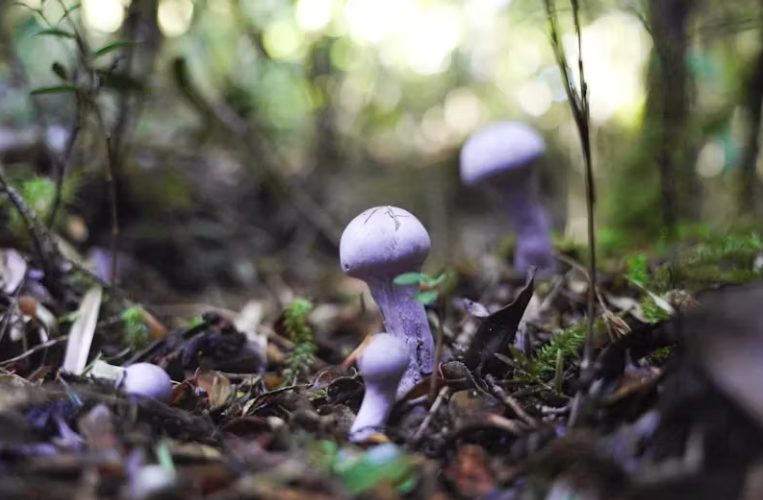
It’s off the charts: 2023 has been the hottest year on record by a wide margin. Across the world, skyrocketing temperatures fueled climate-induced disasters — leaving communities to grapple with deadly floods, wildfires, droughts and storms. Yet against this backdrop, new research highlighted nature as a powerful climate solution.
In the final weeks of the year, Conservation News is reflecting on some of our most noteworthy stories about how nature helps combat climate change — from fascinating fungal networks that capture staggering amounts of carbon, to new research (informed by data from space lasers, no less) into the health of forests. Here are some highlights:
Vast fungal networks not only shuttle nutrients underground to help trees thrive, they are also unseen allies in the fight against climate change. A recent study shows they absorb massive amounts of climate-warming carbon — equivalent to more than a third of the world’s annual fossil fuel emissions.
“In conservation, fungi have, understandably, received a fraction of the attention of forest restoration,” said Heidi Hawkins, the study’s lead author and a scientist with Conservation South Africa, a Conservation International affiliate. “But these fungi could be part of the crucial fight to curb climate change.”
Read more here.
Like a lot of research about earthly ecosystems, this analysis started in outer space.
Scientists from Conservation International and other organizations used data generated by a laser mounted on the International Space Station to create the first-ever three-dimensional map of the world’s forests. The information enabled researchers to measure the structure and health of forests on a global scale — and calculate the full amount of carbon they store.
“This data opens a window of opportunity to help us understand how we can target areas that store the most carbon and therefore provide the most potential to mitigate climate change,” said Conservation International scientist Patrick Roehrdanz, a study co-author.
Read more here.
The world’s first official climate change report card — technically known as the global stocktake — found that drastic improvements are needed to stave off the most dangerous impacts of global warming. It called for urgently implementing emissions reductions across all sectors, and shifting trillions of dollars in global investment toward low-emissions, climate-resilient development. The dire findings came as no surprise amid a string of warnings that the world’s efforts to curb climate change are falling far short. Still, according to Conservation International climate policy expert Kiryssa Kasprzyk, there is room for optimism.
Read more here.
As countries struggled this year to respond to dangerous heatwaves, a new study led by Conservation International offers the most comprehensive review yet of what’s causing deforestation — a major cause of greenhouse gases, second only to fossil fuel emissions. Spoiler alert: It’s not always what you may think.
“This new study can help guide policies and investment toward actions that support goals [to fight climate change] — and away from those that don’t,” said lead author and climate economics expert Jonah Busch.
Read more here.
Companies that buy carbon credits are doing more to tackle their climate footprints than those that don’t, according to a detailed report from Ecosystem Marketplace, an environmental finance nonprofit. The report analyzed the voluntary carbon market transactions and corporate climate change disclosures of more than 7,400 companies with a combined US$ 110 trillion in assets. It found that not only are companies that invest in the carbon market nearly twice as likely to reduce their carbon emissions year over year, they also outperform their competitors in addressing climate change in their supply chains.
Read more here.
A small Pacific island nation scored a major victory for climate justice.
Vanuatu, an archipelago of 320,000 people threatened by rising seas and devastating storms, is behind a landmark U.N. resolution that could hold carbon-polluting countries to account for failing to act on climate change.
Conservation International’s climate lead, Emily Nyrop, explains what the resolution means and how it could advance climate justice.
